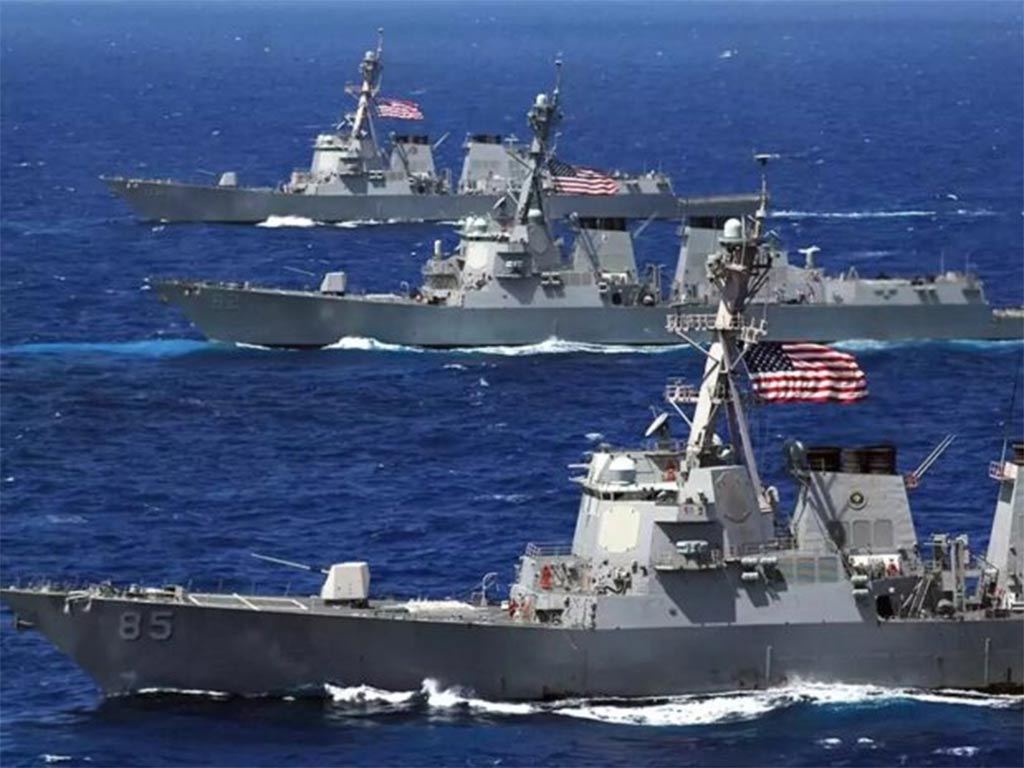The US military deployment in the Caribbean now poses a threat not only to Venezuela but also to alternative projects in Latin America, stated Mexican researcher José Antonio Hernández.
In a conversation with Prensa Latina, the PhD in Latin American Studies from the National Autonomous University of Mexico (UNAM) commented on the motivations behind Washington’s escalation in the Caribbean, as well as its rhetoric against Venezuelan President Nicolás Maduro.
Although he appears to have opened a door to dialogue with his counterpart, according to recent statements, US President Donald Trump sent his most advanced aircraft carrier to the area, ordered attacks against alleged drug-running boats, and military exercises were conducted near the South American country.
In addressing the reasons for Washington’s campaign against Caracas and its leaders, Hernández, also a specialist at the Center for Research on Latin America and the Caribbean, pointed first to the geopolitical project that Venezuela represents.
He recalled Caracas’s promotion of the Bolivarian Alliance for the Peoples of Our America (ALBA), the Union of South American Nations (UNASUR), and the Community of Latin American and Caribbean States (CELAC), all focused on resolving problems within the region, without US interference.
“All of this openly challenged US hegemony” in the region, said the expert, who also mentioned the multipolar initiative promoted by the South American country through alliances with Russia and China, which Washington considers a threat to its interests.
Hernández also referred to the value the United States places on the natural resources of the South American nation, which has the world’s largest oil reserves, as well as gold, bauxite, and rare earth elements.
Regarding the pretext of drugs, used to threaten Venezuela in particular, the UNAM researcher pointed out that drug trafficking, terrorism, and human rights have historically been issues used by the United States to exert influence in the region.
As examples of Washington’s use of these issues to intervene in or change any government that is not aligned with its interests, he cited the invasion of Panama in the late 1980s, Plan Colombia, and the war on drugs in Mexico.
The United Nations itself has recognized that Venezuela remains free of illicit crops and refuted the United States’ accusations against Caracas as a supposed central route for drug trafficking.
According to the 2025 World Drug Report, published by the UN Office on Drugs and Crime, the “great highway” through which 87 percent of these illicit substances pass exits via the Colombian and Ecuadorian Pacific coast, with only five percent attempting to cross through Venezuela.
Hernández emphasized that various nations and regional organizations have spoken out in defense of Venezuela’s sovereignty and independence, as well as against any type of interference or militaristic approach in the area, including Colombia, Mexico, and Brazil.
In his opinion, a large-scale intervention in the South American nation would have a high political cost for the US government, especially given the unity of the military command in the South American nation and the internal support for President Maduro’s administration.
For the region, meanwhile, an armed conflict would have consequences in areas such as international law, as it would completely break the principle of non-intervention that has governed most of the countries in this geographic area.
According to the expert, preventing an invasion of Venezuela or the region requires strengthening integration mechanisms, multilateralism, and diplomacy, as well as bolstering domestic projects, since strong popular support reduces the risk of any type of aggression.
Regarding the United States-Mexico relationship, he considered an intervention in Mexico unlikely due to trade interdependence, although the U.S. administration “uses this threat as a pressure tactic to seek concessions on issues such as migration and drug trafficking.”
“While the Mexican government has been quite cautious, I believe it has been very clear in its position of completely rejecting any type of intervention, emphasizing sovereignty, and above all, dialogue as the means to resolve disputes,” he stated.
He highlighted that President Claudia Sheinbaum has sought a stable relationship without abandoning the principles of foreign policy, and alluded to the shift from the positions of neoliberal governments (1982-2018), “which were very much aligned with U.S. interests.”
[ SOURCE: PRENSA LATINA ]

